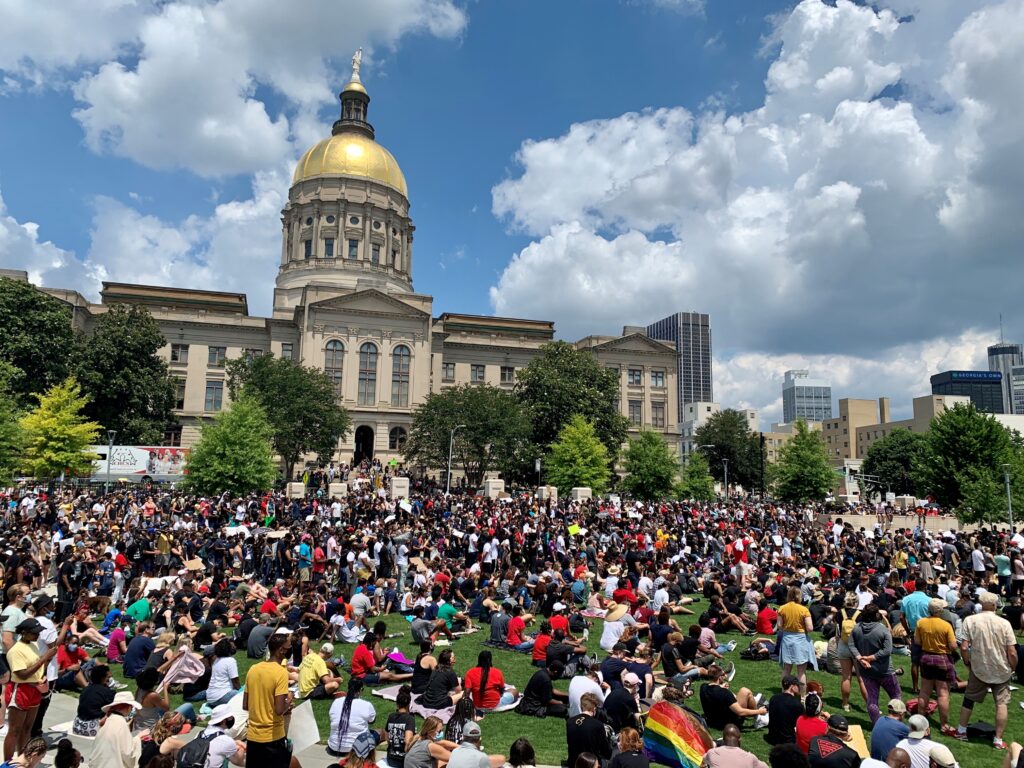
Legislation to crack down on rioting protesters in Georgia that drew scorn from criminal justice advocates has been revived in the General Assembly after stalling earlier this month.
A wide-ranging measure on permitting, criminal penalties and civil liability for violent protesters and tolerant city governments was brought by Sen. Randy Robertson, R-Cataula, and faced debate March 2 in the Senate Judiciary Committee but didn’t get a vote.
Robertson’s proposals then were tacked into a different bill sponsored by Rep. Dave Belton, R-Buckhead, that originally just dealt with educational courses for driver’s licenses. The overhauled bill with Robertson’s proposals cleared the Senate Public Safety Committee by a 5-3 vote on Thursday.
Robertson, who is a retired major with the Muscogee County Sheriff’s Office, said his measure came in response to riots seen at times during protests last summer against police brutality and racial injustice, as well as the Jan. 6 insurrection at the U.S. Capitol by supporters of former President Donald Trump.
“We are discussing only unlawful assemblies,” Robertson said at Thursday’s hearing. “We are in no way trying to limit or prevent any group from having a peaceful assembly or peaceful protest.”
Robertson’s measure, called the “Safe Communities Act of 2021,” would make it a felony with fines and prison time to commit violent acts in gatherings of seven people or more, block a highway or road and deface public structures like monuments or cemeteries.
It would also hold city and county governments liable in civil court for interfering in a police agency’s protest enforcement, require permits for protests and rallies, block local officials from reducing police budgets by 30% or more in a year.
Another proposal not included in the measure’s current version would have provided protections for volunteer groups like “neighborhood watches” to assist police in protest enforcement.
Opponents from several groups focused on civil liberties, free speech, criminal defense and county finances have condemned the measure on grounds it could defy free-speech constitutional rights, leave local governments open to costly lawsuits and give legal cover to vigilante and militia groups to intervene in protests.
“[Robertson’s measure] incentivizes counties and communities to crack down on protests or prevent them from occurring in the first place at all, and attempts to punish municipalities for meaningful reining-in of police when it really needs to happen, said Christopher Bruce, political director for the American Civil Liberties Union’s Georgia chapter. “We know that this tramples on our First Amendment rights.”
The bill now heads to the full Senate for a vote and would still need to pass the House of Representatives before going to the governor’s desk.
Thursday also saw the Public Safety Committee pass controversial legislation that would block city and county governments from reducing budgets for most local police agencies in Georgia by more than 5% during any five-year period.
That bill, sponsored by Rep. Houston Gaines, R-Athens, also heads to the Senate for a floor vote.
